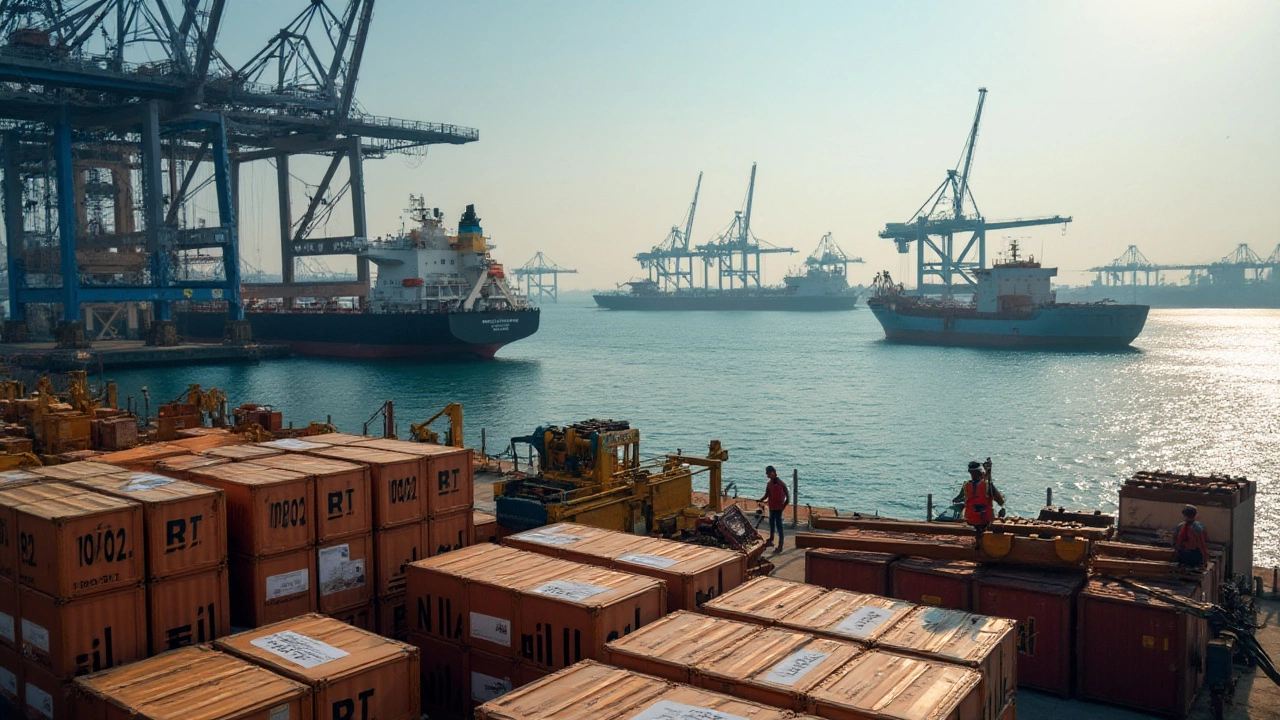Organic Chemicals: What They Are and Why They Matter
When you hear "organic chemicals" you might think of lab coats and complicated formulas, but they’re actually behind many things you use daily – from the perfume on your shirt to the plastic bottle you drink from. In India, the organic chemical sector fuels everything from pharma to agriculture, making it a key piece of the country’s industrial puzzle.
Key Players in India’s Organic Chemical Scene
India hosts a mix of big names and agile startups. Companies like Gujarat Alkalies & Chemicals and Rashtriya Chemicals & Fertilizers have long histories of producing bulk organic compounds. Meanwhile, newer players focus on specialty chemicals for electronics, cosmetics, and high‑performance polymers. What ties them together is a push for higher efficiency, lower emissions, and deeper integration with global supply chains.
Most of these firms operate in industrial clusters such as Hyderabad’s pharma hub, Gujarat’s chemical corridors, and Tamil Nadu’s coastal zones. The location advantage helps them tap into port facilities, skilled labor, and nearby raw‑material suppliers.
Market Trends Shaping the Future
Three trends are reshaping the organic chemical market right now. First, sustainability is no longer a buzzword – regulators and customers demand greener processes, so many firms are investing in bio‑based feedstocks and waste‑reduction technologies. Second, digital tools like AI‑driven process optimization are cutting costs and improving product quality. Finally, the rise of “Made in India” pharmaceuticals and agro‑chemicals is creating a home‑grown demand for specialty organic intermediates.
These trends translate to real opportunities. If you run a small manufacturing unit, adopting a greener catalyst could lower your energy bill by 10‑15 %. For larger players, partnering with a tech startup that offers real‑time reaction monitoring can boost yield and cut downtime.
Another practical point: export demand for organic chemicals is picking up, especially from the EU and Southeast Asia. To stay competitive, companies need robust quality certifications and transparent traceability – things that buyers check before signing a contract.
Whether you’re a student, a small‑scale entrepreneur, or a seasoned chemist, understanding these shifts helps you make smarter decisions. Want to know more about specific chemicals like benzene, toluene, or ethyl acetate? Our tag page brings together articles that break down uses, safety tips, and market data in plain language.
In short, organic chemicals are the silent engine behind many Indian products, and the sector is moving fast toward greener, smarter, and more globally connected operations. Keep an eye on policy changes, tech upgrades, and export trends – they’ll dictate where the next growth spurts happen.

Top Sources for India's Organic Chemical Imports
India, known for its booming chemical industry, relies heavily on imports of organic chemicals from several key countries to meet its industrial and commercial demands. This article provides an in-depth exploration of the primary sources of these imports, highlighting the countries that play a pivotal role in supplying organic chemicals to India. Additionally, it offers insights into the types of organic chemicals imported and the significance of these imports to India's economy. By understanding these dynamics, businesses and consumers can gain a clearer perspective on the global chemical supply chain.
